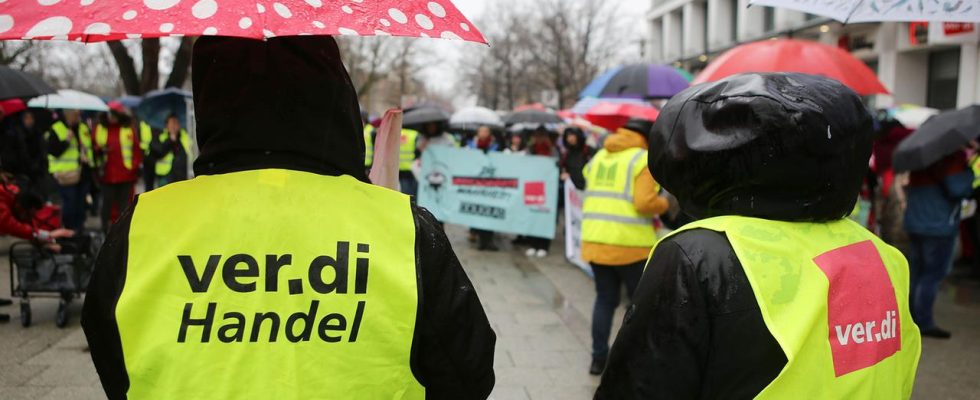Before the weekend, ver.di called for a warning strike in retail. Edeka customers in particular could be affected. The union accuses the employers of taking a blockade stance.
Consumers nationwide will have to prepare for restrictions in retail tomorrow. The ver.di union called on employees to go on warning strikes today. “This is just the first of several strike and action highlights in the coming weeks,” said Silke Zimmer, ver.di federal board member responsible for trade.
Strike rallies in Hamburg, Cologne and Chemnitz
The current round of collective bargaining in retail has been going on for more than eight months. Even numerous warning strikes, for example right before Christmas, could not change the messy situation. The warning strikes have so far had little impact on customers because participation in the industrial action was rather low. Tomorrow ver.di expects 13,000 strikers nationwide.
According to the union, several weeks of action will follow until Easter. “We want to specifically focus on the blockers in the employer camp. This week we are starting with Edeka. To do this, actions are taking place in front of warehouses and branches,” says Zimmer. The union is planning several strike rallies at Edeka for tomorrow – including in Hamburg, Cologne and Chemnitz.
Wage increase of 15 percent demanded
Ver.di demands, among other things, at least 2.50 euros more per hour in retail in all regions and a term of one year. For the lower groups of employees there should be an increase in hourly wages to 13.50 euros for a period of twelve months. According to the German Trade Association (HDE), this corresponds to a wage increase of 15 percent. Depending on the federal state, there are additional requirements.
The employers, for their part, are offering wage increases of around ten percent over a period of two years and an inflation compensation bonus of 750 euros. According to ver.di, this only means an hourly wage increase of 1.04 euros in the first tariff year. “That is less than half and is not remotely enough to compensate for the real wage losses of the last few years,” said Zimmer.
Top-level talks at the federal level have not brought any progress recently. “We have approached employers several times in the past few months and offered solutions,” said the ver.di representative. However, all suggestions were rejected by the employers. “They are currently blocking negotiations.”

